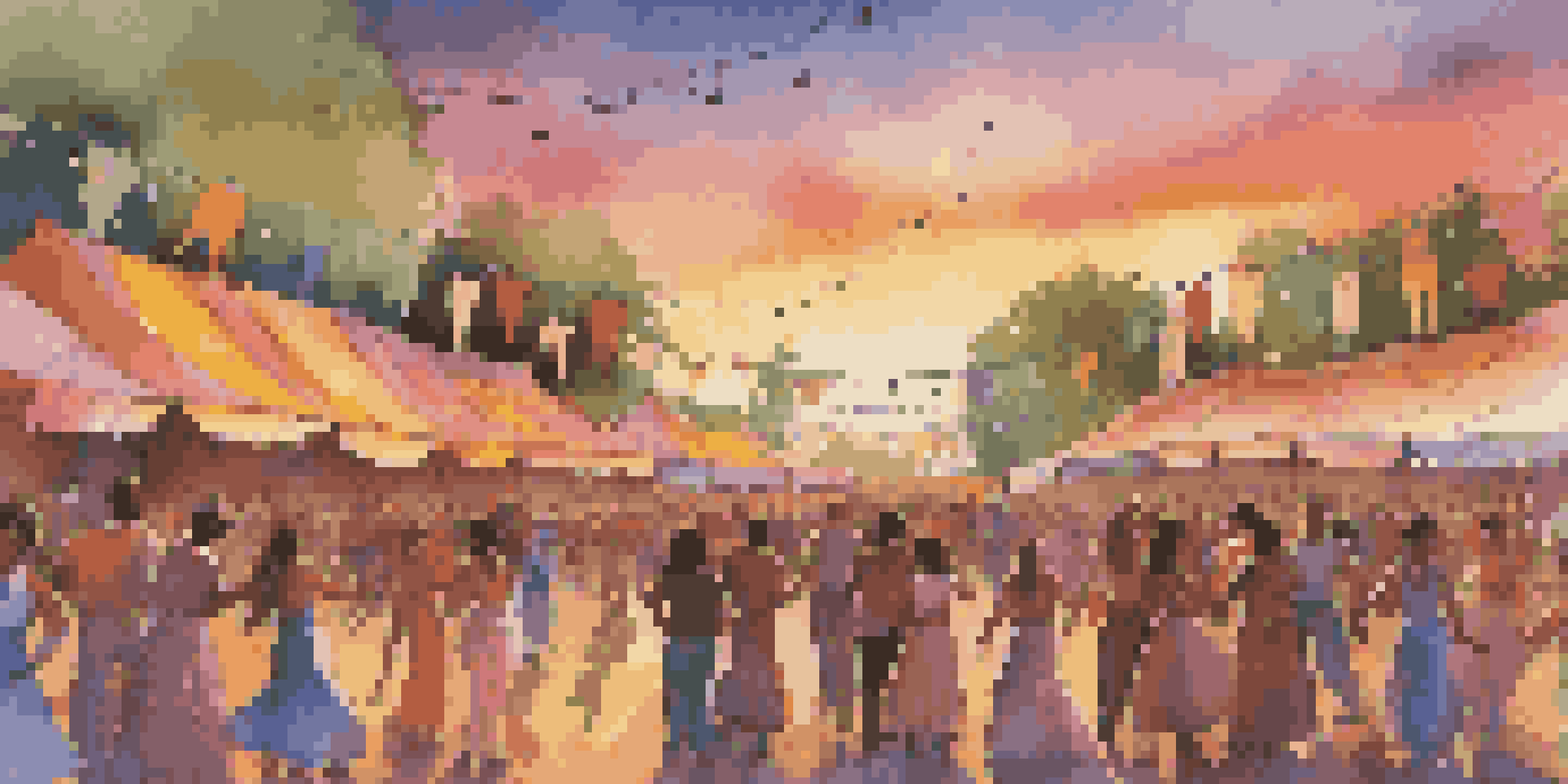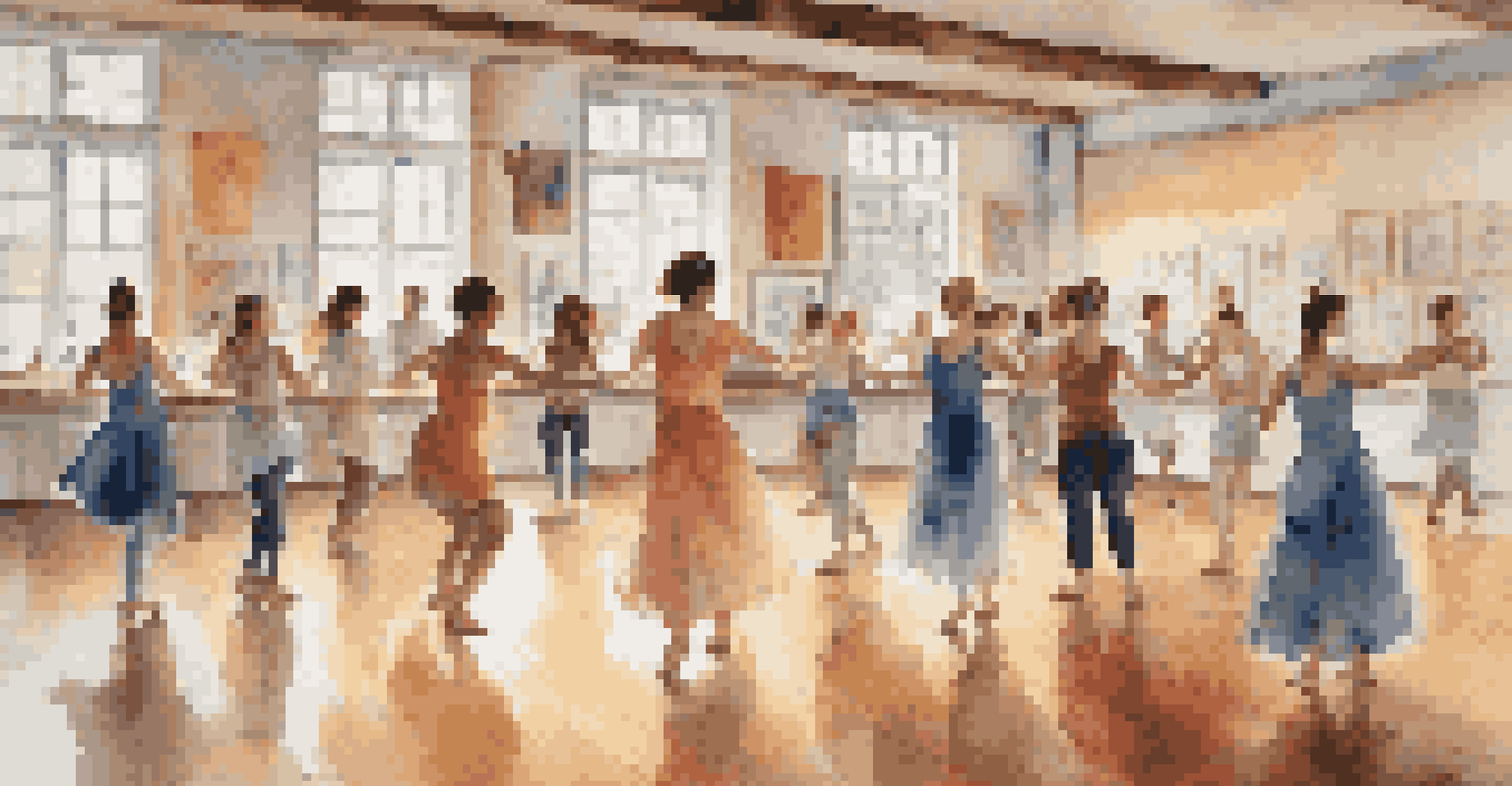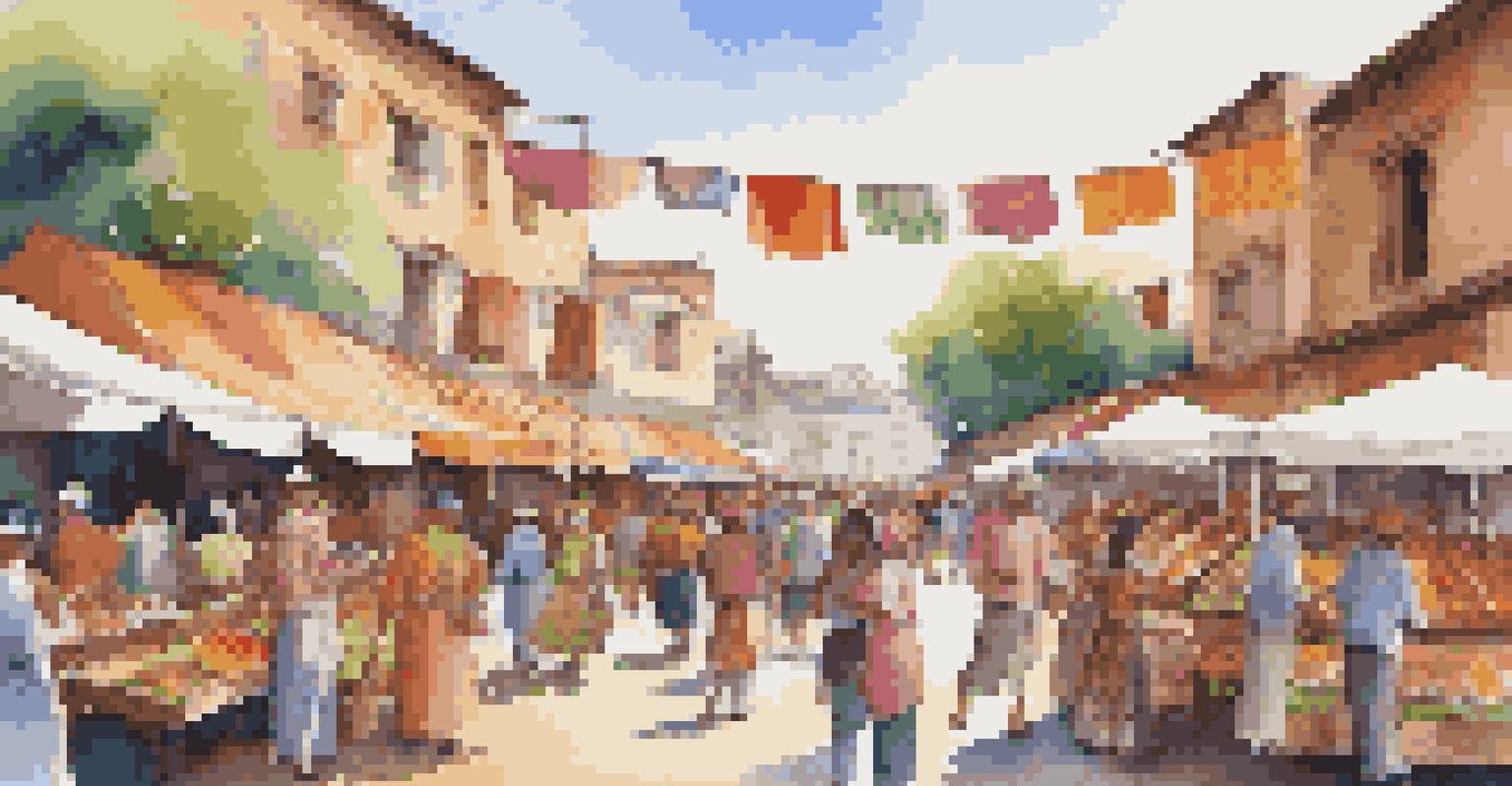Dance Festivals and Their Impact on Local Economies

Understanding Dance Festivals and Their Appeal
Dance festivals are vibrant celebrations of movement, music, and culture that attract diverse audiences. These events not only showcase various dance styles but also foster community engagement and artistic expression. From bustling city streets to quiet rural venues, dance festivals create a unique atmosphere that draws in both locals and tourists.
Dance is the hidden language of the soul.
The appeal of dance festivals lies in their ability to bring people together, regardless of age or background. Families, friends, and even strangers come together to enjoy exhilarating performances and participate in workshops. This communal atmosphere transforms festivals into memorable experiences, making attendees more likely to return and share their joy with others.
Moreover, dance festivals often highlight local talent and cultural heritage, enriching the community's identity. By incorporating regional dance styles and artists, these festivals celebrate unique traditions while promoting inclusivity and diversity.
Economic Benefits of Hosting Dance Festivals
Dance festivals can significantly boost local economies by attracting visitors who spend money on accommodations, food, and entertainment. When people travel to attend these events, they contribute to the financial well-being of local businesses, from hotels to restaurants, creating a ripple effect throughout the community. This influx of revenue can be particularly vital for small towns that rely heavily on tourism.

Additionally, dance festivals often require local vendors and artisans to showcase their products, providing them with valuable exposure and sales opportunities. This not only helps individual businesses thrive but also creates a sense of pride within the community, as locals support one another.
Dance Festivals Boost Local Economies
These events attract visitors, enhancing spending in local businesses and creating a positive economic ripple effect.
Moreover, the revenue generated from dance festivals can be reinvested into community projects, such as parks, schools, and cultural initiatives. This long-term economic impact is essential for fostering sustainable growth and enhancing the overall quality of life for residents.
Job Creation and Employment Opportunities
Hosting a dance festival can lead to job creation in various sectors, from event planning to hospitality. Local organizers often hire staff for administrative roles, marketing, and logistics, providing employment opportunities for residents. Additionally, festival-related jobs, such as security and catering, can arise during the event, further boosting local employment.
The dance is a poem of which each movement is a word.
Freelancers and performers from the area may also find work at these festivals, showcasing their talents and earning income. This not only supports local artists but also encourages them to remain in their communities, contributing to a vibrant cultural scene.
Moreover, the skills and experience gained by those involved in organizing and executing dance festivals can lead to future employment opportunities. By developing expertise in event management and marketing, individuals can enhance their resumes and open doors to new career paths.
Promoting Local Culture and Identity
Dance festivals often serve as a platform for local culture and identity, celebrating the unique traditions that make a community special. By featuring local dance styles and incorporating regional themes, these events allow residents to connect with their heritage and share it with visitors. This cultural exchange fosters a sense of belonging and pride among community members.
Furthermore, inviting international artists and dance companies can enrich the local cultural landscape. This exposure to diverse dance forms creates an environment for cross-cultural dialogue and learning, making the festival a melting pot of ideas and styles.
Fostering Community and Culture
Dance festivals promote local culture and identity, allowing residents to celebrate their heritage while engaging with diverse art forms.
As attendees experience various cultures through dance, they develop a deeper appreciation for the arts, which can lead to increased support for local artists and cultural initiatives. This creates a positive feedback loop that strengthens the community's identity and artistic expression.
Enhancing Community Cohesion and Engagement
Dance festivals bring people together, fostering a sense of community and engagement. As attendees participate in workshops and activities, they form connections with others who share similar interests. This communal bond strengthens relationships and encourages collaboration among residents.
Moreover, festivals often involve local volunteers, providing them with opportunities to contribute to their community and develop new skills. By working together towards a common goal, volunteers create lasting friendships and a sense of accomplishment, which enhances overall community spirit.
In this way, dance festivals not only entertain but also empower individuals by giving them a stake in the event's success. This sense of ownership can lead to increased civic participation and a greater commitment to local initiatives.
Tourism Development and Marketing Potential
Dance festivals can serve as a powerful marketing tool for local tourism. By highlighting the beauty and uniqueness of a destination, festivals attract visitors who may not have otherwise considered the area. This exposure can lead to repeat visits and word-of-mouth recommendations, further boosting tourism.
Additionally, well-promoted dance festivals can gain media attention, showcasing the community on a larger scale. This media coverage can enhance the area's reputation as a cultural hub, making it more appealing to potential visitors and investors.
Job Creation Through Festivals
Hosting dance festivals generates employment opportunities in various sectors, benefiting local residents and artists alike.
As tourism develops, local governments can capitalize on this growth by investing in infrastructure and amenities, ensuring the community is equipped to handle increased visitor traffic. This proactive approach can lead to long-term benefits for both residents and tourists alike.
Challenges and Considerations for Dance Festivals
While dance festivals offer numerous benefits, they also come with challenges that organizers must navigate. Securing funding and sponsorships can be daunting, as events often require substantial financial backing to cover costs such as permits, marketing, and artist fees. Effective planning and community support are crucial to overcoming these obstacles.
Weather can also pose a challenge, particularly for outdoor festivals. Rain or extreme temperatures can deter attendance and impact the overall experience. Organizers must have contingency plans in place to ensure the festival can proceed smoothly, regardless of the weather.

Additionally, maintaining a balance between commercial interests and artistic integrity is essential. While attracting sponsors can provide financial support, it’s important to ensure that the festival remains true to its mission of celebrating dance and culture, rather than becoming overly commercialized.